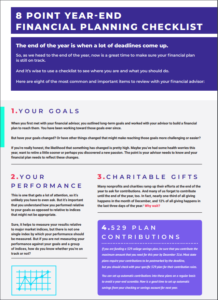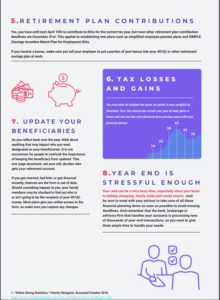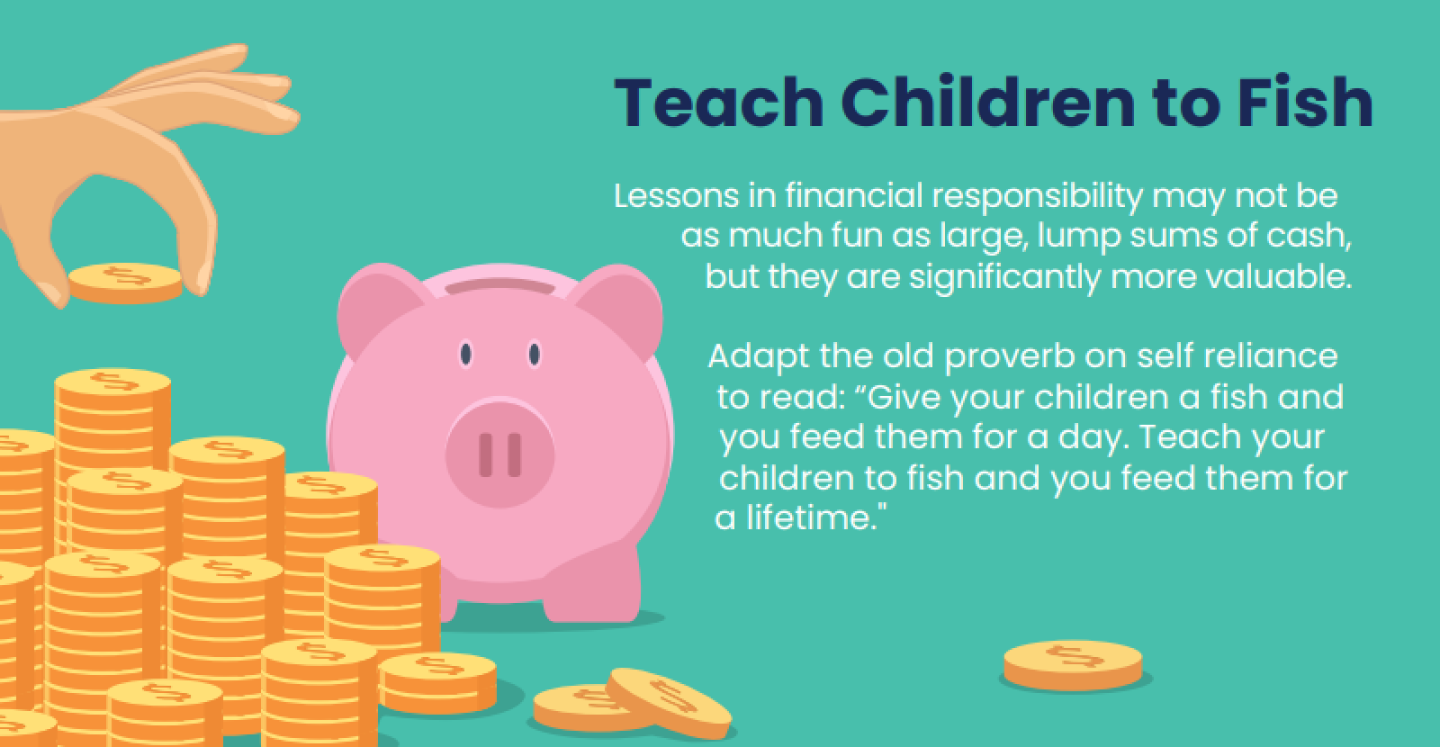The end of the year is a great time to make sure your financial plan is still on track. Review this checklist with your financial advisor to see where you are and what you should do.


Click Here to download your checklist!
This material was prepared by an outside source and does not necessarily represent the views of Zenith Group, Sowell Management, or their affiliates. The information herein has been derived from sources believed to be accurate. Investing involves risk, and past performance is not a guarantee of future results. Investments will fluctuate when redeemed and may be worth more or less than when originally invested. This information should not be construed as investment, tax or legal advice and may not be relied on for the purpose of avoiding any tax penalty. This is neither a solicitation nor recommendation to purchase or sell any investment or insurance product or service.








